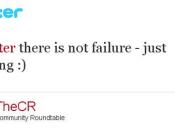STRATEGIC MANAGEMENT
CORPORATE CULTURE
"Some are born great,
some achieve greatness,
and some have greatness thrust upon 'em"
Shakespeare, Twelfth Night"
EXECUTIVE SUMMARY
The concept of organizational culture is a relatively new one. Organizational cultures, like other human cultures, include particular types of artefacts, special values, and common beliefs and assumptions. In some respects, it is the culture that makes the organization a true organization rather than just a collection or randomly engaged people. It provides the defining characteristics that make organizations differ from each other and the foundation for both success and failure organizationally. While organizational culture is, to some extent, organic, it is somewhat malleable and management needs to focus on those aspects of the culture which can be influenced and shaped.
The focus of this paper is to explore the gaining significance of corporate culture and analyse its influences on the organisation with respect to strategic management of the company.
The first section will describe organisational culture as a whole and in parts, outlining its nature, purpose and origin. The second section analyses the relationships of corporate culture with various aspects of the organisational design and corporate strategy. The last section deals with the various issues raised by organisational culture, including ethics, implementation of cultural practices, leaders' role in corporate culture and the future of corporate culture.
SECTION I
Defining Organisational Culture
"Culture is a set of values, guiding beliefs, understanding, and ways of thinking that is shared by members of an organisation and taught to new members of an organisation and taught to new members as correct. It represents the unwritten, feeling part of the organisation" [Daft, pg. 314]. Culture is omnipresent in every organisation. However, employees and even management, rarely consider the powerful impact of culture in their decision-making process, as it is so well...


